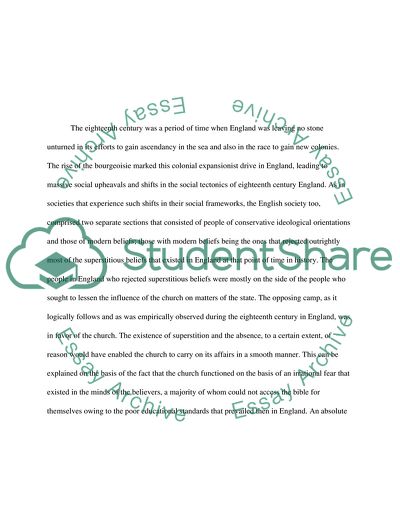Cite this document
(“Superstition in Eighteenth century England Essay”, n.d.)
Retrieved from https://studentshare.org/literature/1584691-superstition-in-eighteenth-century-england
Retrieved from https://studentshare.org/literature/1584691-superstition-in-eighteenth-century-england
(Superstition in Eighteenth Century England Essay)
https://studentshare.org/literature/1584691-superstition-in-eighteenth-century-england.
https://studentshare.org/literature/1584691-superstition-in-eighteenth-century-england.
“Superstition in Eighteenth Century England Essay”, n.d. https://studentshare.org/literature/1584691-superstition-in-eighteenth-century-england.


